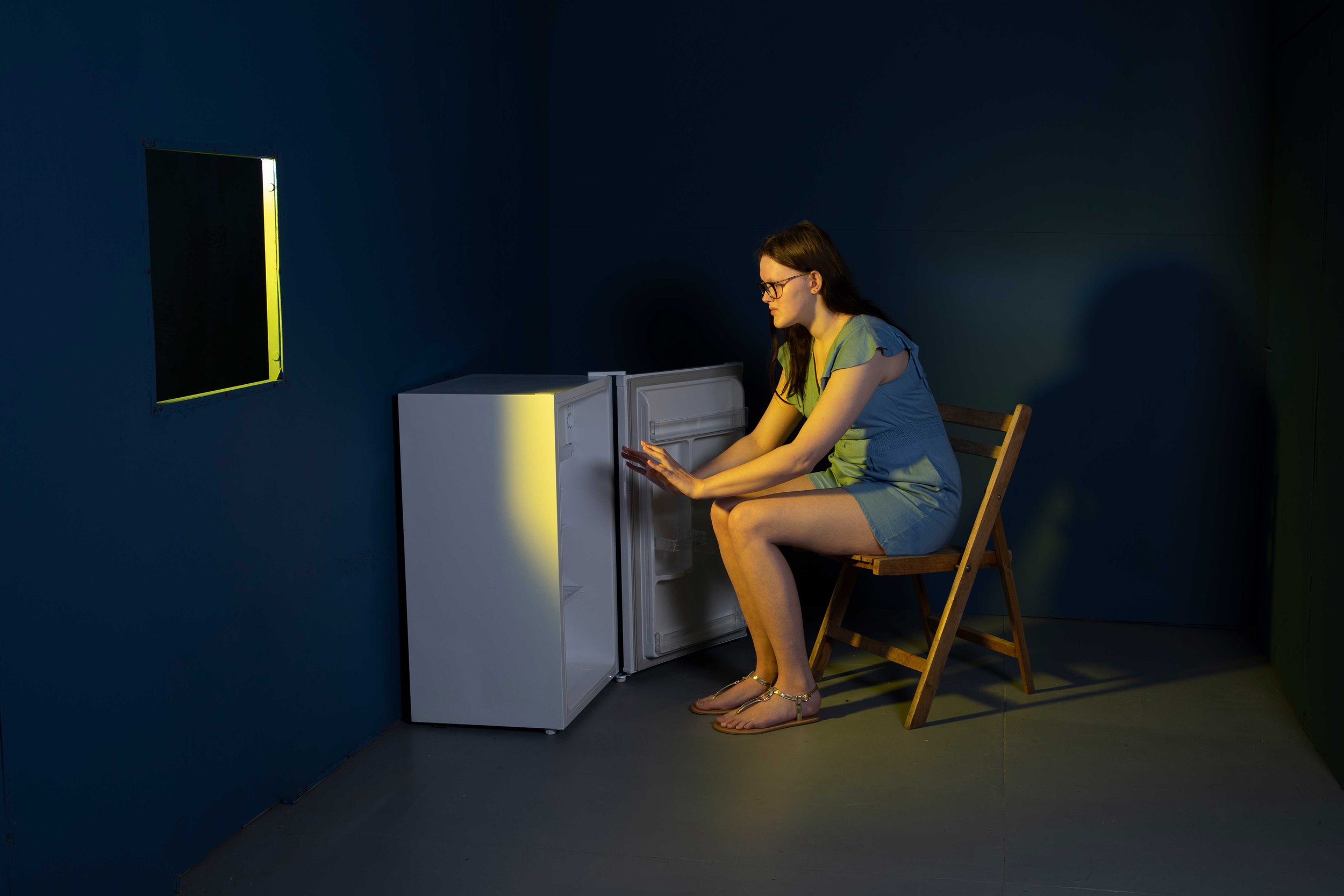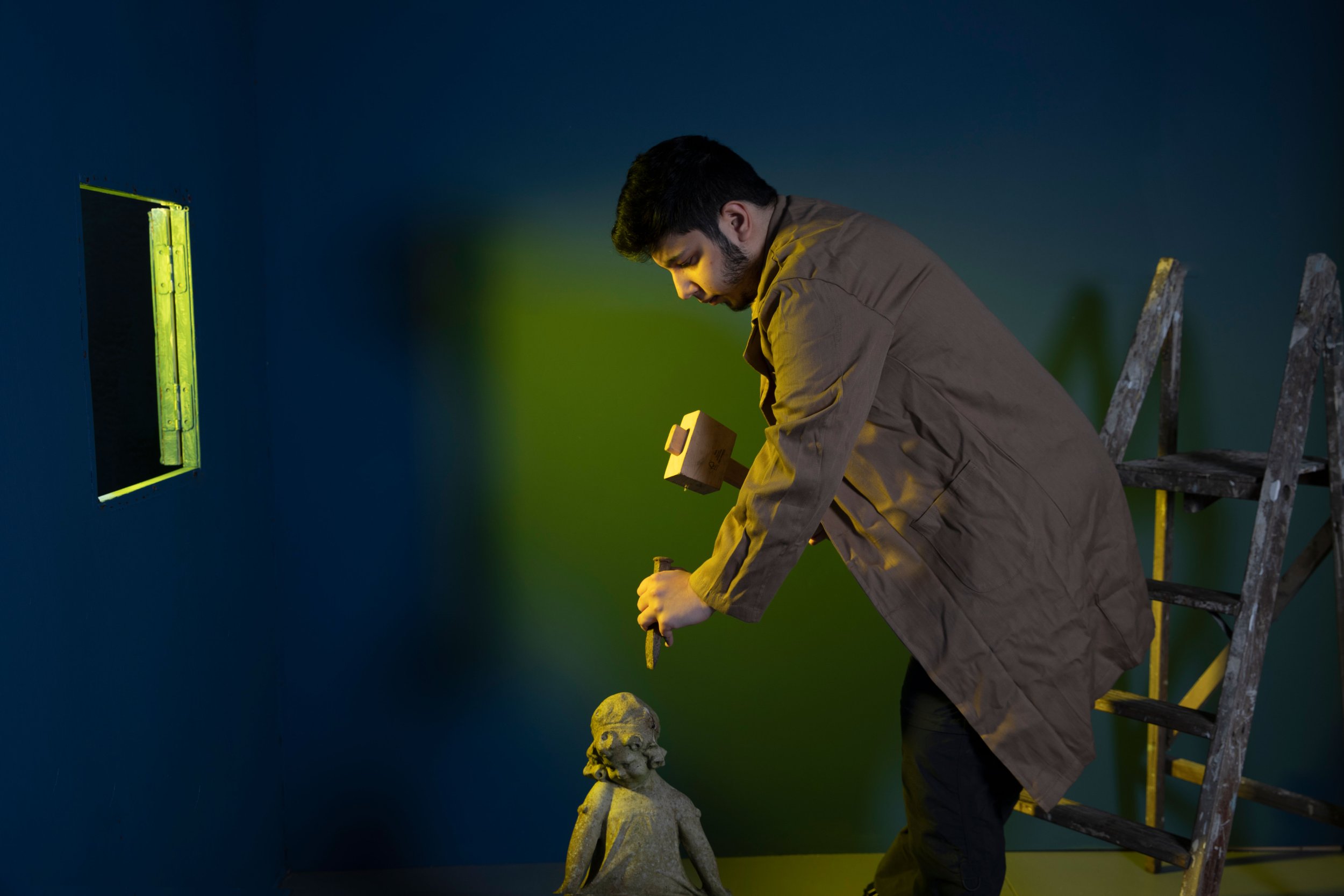I feel I've always had symptoms, even from when I was a child.
Abi has a condition called SAPHO syndrome, which is an inflammatory autoimmune condition, and just 1 in 10,000 people are affected. It is unknown why or how it is contracted and theories range from a viral infection to an underlying genetic cause.
I used to get really bad growing pains, well, what people used to say were growing pains and bad back pain. I was absolutely exhausted all of the time. As an adult, and for about five years, I kept going to the GP and explaining that I was in pain, that I couldn’t sleep, that I was exhausted, but they kept telling me I was just depressed and to take antidepressants. But I wasn’t depressed, yet this still went on for years and it was draining and exhausting.
In 2013 she underwent a double mastectomy due to being a carrier of the BRCA breast cancer gene. The recovery didn’t go well and Abi felt like she just wasn’t improving. After repeatedly returning to her GP for help she eventually refused to leave until every blood test was run, the GP agreed. The next day she was rushed into hospital.
One of the blood results was really out of kilter and it suggested a potential blood clot. The hospital did a CT scan and it showed that all of my bones, my sternum, my collarbone my ribs, were all sclerotic and looked very odd. They were very honest and said it could be bone cancer, which is what the majority of SAPHO patients are initially, or potentially diagnosed with. That was hard because I’d just had major surgery to avoid cancer.
Photograph by Ceridwen Hughes for Days of Rare exhibition
Abi was then sent to London Orthopaedic Hospital to see a specialist, who diagnosed her with SAPHO syndrome.
Although she was happy and relieved that it wasn’t cancer she still had to deal with a devastating new diagnosis. It was so rare that she struggled to find information or help.
I think there's something like just under 1000 people in the UK with SAPHO, it's that rare. Getting a diagnosis was brilliant because it showed that actually I wasn’t depressed, I was just exhausted and in pain. It meant I could get treatment. In a way, it was probably the start of my life and me learning that I'm not like other people. I have an invisible illness and I needed to regulate my life to accommodate it. Life changed! But, I was also able to do things again. I used to spend all my days working full time, and when I wasn't working I was sleeping or ill. I never had any social life, or a work/life balance because I was just exhausted.
There is no standard treatment for SAPHO and there is no funding for drugs, often because it's not a known condition with a recognised treatment plan. Each patient is unique and the treatment is often a case of trial and error. Treatments can include antibiotics, steroids, bisphosphonates (which build up your bones), or methotrexate which is a very low-dose chemo. For some patients exercise, and diet works. Abi is currently on anti-TNF medication, drugs that help stop inflammation, which has to be injected every week. Having been on it for many years it’s now not as effective and she feels it's no longer working. Recently she has just come out of a three-month-long bad bout and although it's a syndrome that is remitting and relapsing (which means that it can come and go), she doesn’t believe that for her it’s the case as she hasn’t had a time that she has been in remission.
SAPHO syndrome is a chronic disorder that involves the skin, bone, and joints. SAPHO syndrome was given its acronymic name based on the presence of synovitis, acne, pustulosis, hyperostosis, and osteitis in patients. SAPHO syndrome causes painful inflammation and stiffness of joints. The joints affected can be spinal or peripheral joints (e.g. knees, wrists, etc.). Acne and painful pustules on the palms of the hands and soles of the feet can also be characteristic. The age of onset typically ranges from adolescence to late adulthood, with a median age between 30 and 40 years although some studies suggest that CRMO is the paediatric presentation of SAPHO.
Abi can no longer work and struggles to make plans due to not knowing how she will feel at the time.
Her health has also taken a toll on her financially, and being unable to work or live the life she wanted to has been difficult and upsetting. She has had to fight through tribunals for benefits and it has all been exhausting, deflating and draining.
It really, really upsets me mentally. It took a lot to understand that I have already put into society, I've worked for 20 years. I've had to stand up in court at a tribunal three times, and I've won every time. I literally had to stand there to prove that I am disabled, you can't see my disability, but I am and this is how it affects me. This is the proof. It is degrading. It's hard to try and live with such a rare condition and then have in the back of your head that next year is the year that they're going to ask me to reapply and I'll lose it again because that's what happens, and then I will have to live through a year without money before the next tribunal. It's exhausting and it does affect you mentally but it helps to be in contact with other people with rare diseases, specifically this condition, and to understand the variety of the condition. Speaking to other people just validates you, it validates that you have got a rare condition.
Photograph by Ceridwen Hughes for Days of Rare exhibition
My day-to-day life now is understanding myself.
Thinking each day ‘how is my body today? Which part of my body hurts? What am I going to have to deal with today?’ And then you know OK, I can't do that today, or I can do that today, but tomorrow I know I'm going to be paying for it. It's understanding that you can't do what you used to do before you had this condition, but you can learn how to survive, how to still have a life, which I never really used to have. It's taken a long time, it's almost losing a part of yourself and adapting to it, and that doesn't happen overnight. It's hard! It's really hard! But, I think, you know, after nine years I'm getting there. It's almost a full-time job being sick, because you've got to maintain your mental health, your physical health, and you've got to get out and do things. It is a balancing act. I make sure that every day I go out and walk, it’s so important. Even a couple of weeks ago, when I couldn't even stand up, I still went out for a walk. It hurt, but I did it because it helps my mental health seeing the beauty of the outside.
Abi has set up her own SAPHO support website and Facebook group in the hope of reaching more people. She hopes to help people with the condition to be heard, to get a diagnosis, to get their life back. Believing passionately that it's important to work in partnership with clinicians, not just for the patient, but also for the clinician to understand the condition more because it's so rare.
Real-life experience is also important, hopefully, it will all help, and the website and the Facebook group will help signpost people to support, different treatment options, and to find others to talk to. SAPHO is exhausting and it does affect you mentally but it helps to be in contact with other people with rare diseases, specifically this condition, and to understand the variety of the condition. I think my main reason for doing the website is to show people that they're not alone.
SAPHO SYNDROME UK
Set up by Abi, Sapho Syndrome UK supports anyone affected by the inflammatory autoimmune condition and aims to raise awareness in the UK.
You can listen to Abi chat with Ilmarie Braun, Same but Different Project Manager on our podcast channel.







